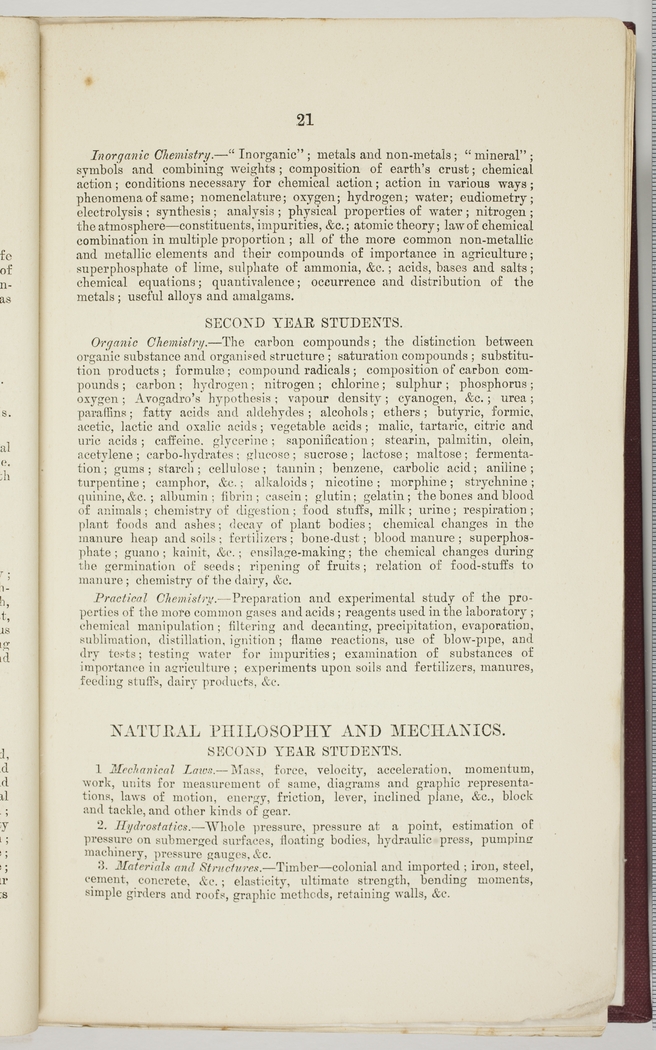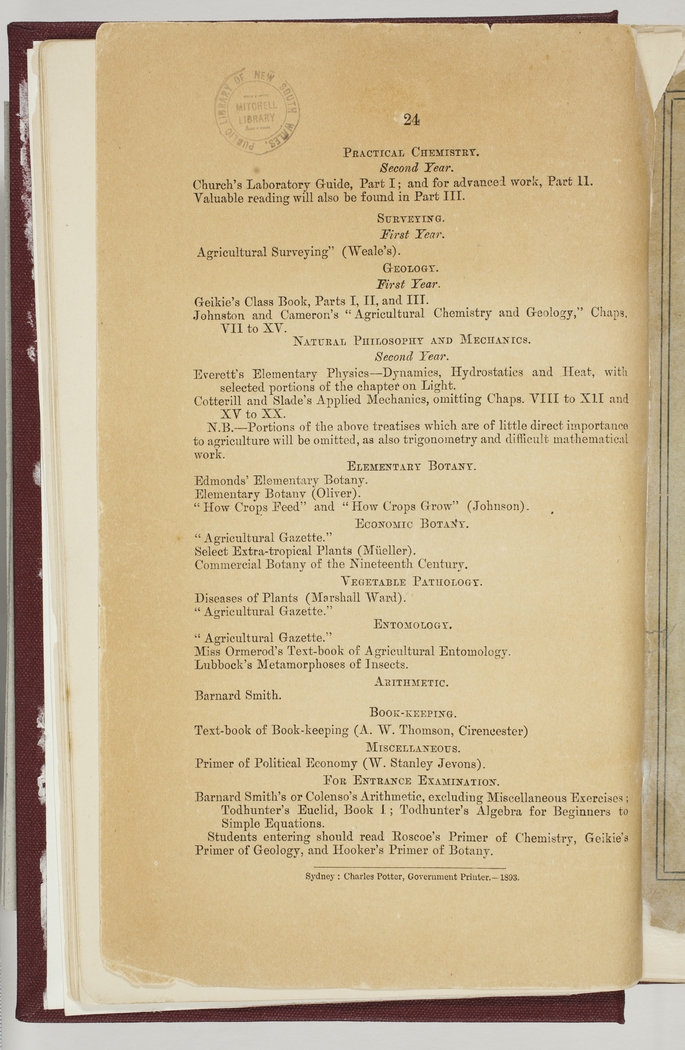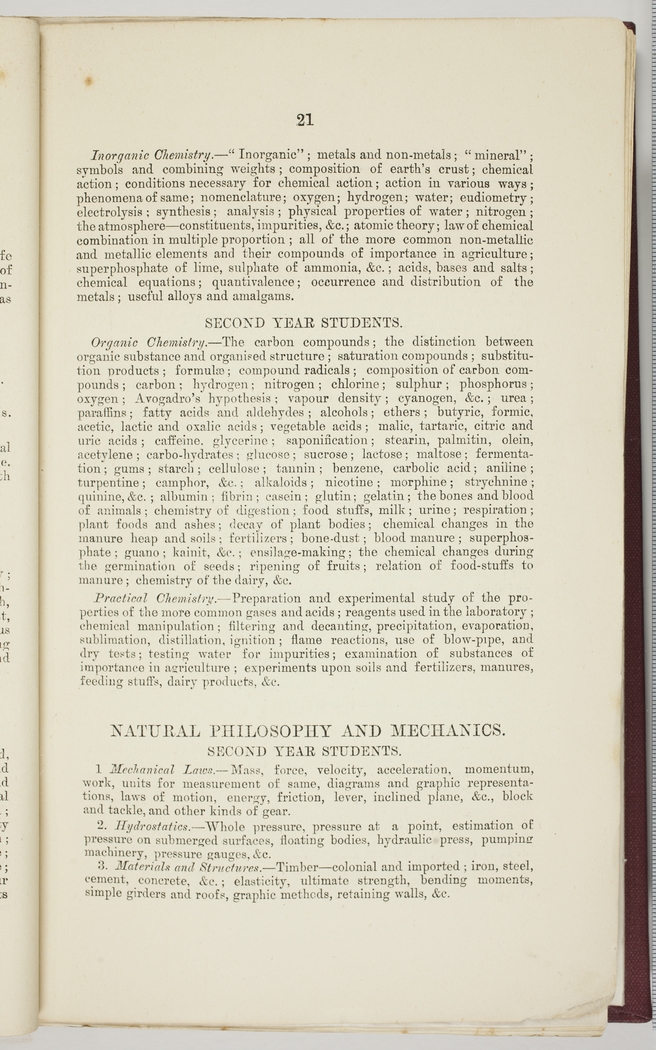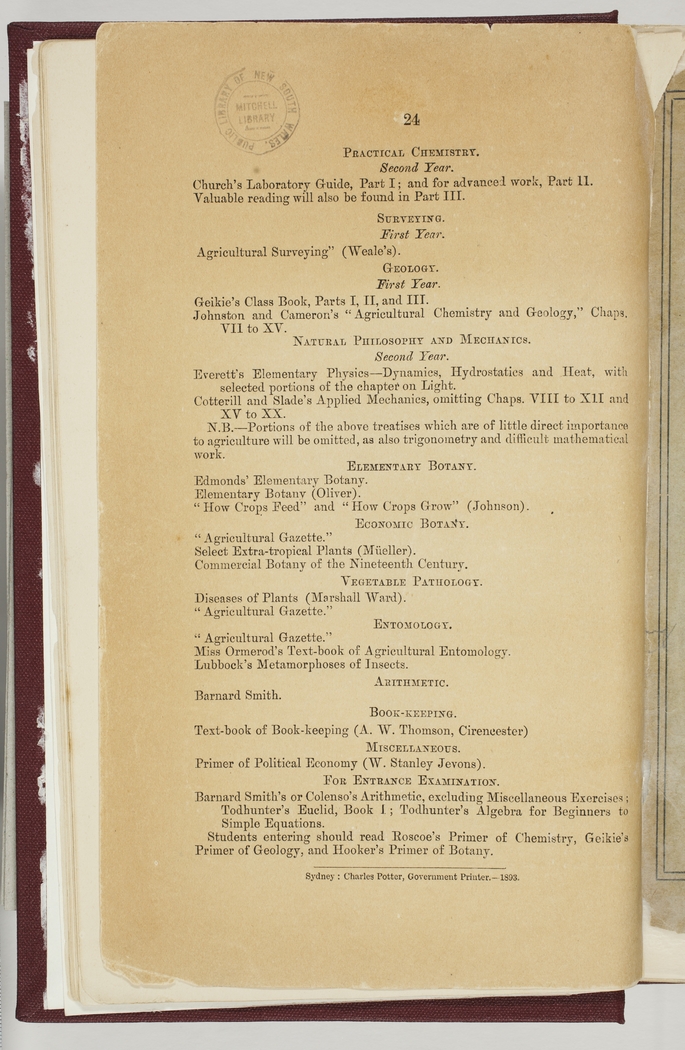Learning the trade
In 1789, James Ruse was asked by Governor Arthur Phillip to establish an experimental farm in order to find out if a sustainable farm was a viable concept in the new colony.
At this time the settlers didn't know how long it would take to establish a farm, whether it could support a settler and his family, or produce surplus products for sale, or even what sorts of crops and herds would thrive or die in the strange climate and soil conditions. Ruse's Experiment Farm at Harris Park proved that a farmer could become self-sufficient, (it took Ruse about a year-and-a-half), and paved the way for ongoing agricutural experientation and education in New South Wales and Australia.
This trial-and-error form of farming meant that most early settlers learned the trade by hard experience - either their own, or that of previous generations of settlers. Hundreds of publications aimed at educating young farmers appeared and by the late 19th century, farmers and graziers had built up enough expertise to sustain the colony. However new technologies and a new emphasis on the science of agriculture created a need for formal education to give young people and newcomers a solid grounding in the trade of farming and farm management.
The first agricultural college was established in 1891 by the New South Wales government. The Hawkesbury Agricultural College was allocated 3.5 thousand acres near Richmond, encompassing land of all qualities, from river flats to lush pasture. It started with just 26 students who divided their time between theoretical lessons in the agricultural sciences and practical lessons on the College's working farm. Students could earn diplomas, and certificates for short courses.
Hawkesbury Agricultural College




















Farm schools were established at several experimental farms across New South Wales including Wagga, Bathurst, Cowra and Yanco during the 1890s and early 20th century. Women were admitted to some schools during World War I, to develop farming skills while the men were away at war. Training farms were also run for returned servicemen as part of the Soldier Settlement Scheme.
Several experimental farms later became agricultural colleges, including Wagga Wagga in 1949 and Yanco in 1967. The CB Alexander Agricultural College at Tocal opened in 1965 and the Orange Agricultural College in 1974. Several of these colleges were absorbed into universities after the 1970s, including Hawkesbury, which is now part of the University of Western Sydney (UWS). Due to low enrolment numbers, news reports state that UWS will not offer agriculture in 2012 for the first time in over a century.

We Hold: 1891; 1893-1961 : Incomplete.
















Sponsors
This story has been developed with the support of the State Library of NSW Foundation.
We would like to acknowledge the generosity of the Vincent Fairfax Family Foundation.
The Sydney Royal Easter Show
Formed to encourage and promote the future of agriculture in the colony.








































